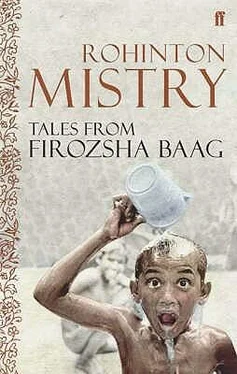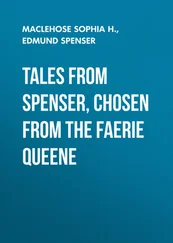Rohinton Mistry - Tales From Firozsha Baag
Здесь есть возможность читать онлайн «Rohinton Mistry - Tales From Firozsha Baag» весь текст электронной книги совершенно бесплатно (целиком полную версию без сокращений). В некоторых случаях можно слушать аудио, скачать через торрент в формате fb2 и присутствует краткое содержание. Год выпуска: 2006, Издательство: Faber & Faber, Жанр: Современная проза, на английском языке. Описание произведения, (предисловие) а так же отзывы посетителей доступны на портале библиотеки ЛибКат.
- Название:Tales From Firozsha Baag
- Автор:
- Издательство:Faber & Faber
- Жанр:
- Год:2006
- ISBN:нет данных
- Рейтинг книги:3 / 5. Голосов: 1
-
Избранное:Добавить в избранное
- Отзывы:
-
Ваша оценка:
- 60
- 1
- 2
- 3
- 4
- 5
Tales From Firozsha Baag: краткое содержание, описание и аннотация
Предлагаем к чтению аннотацию, описание, краткое содержание или предисловие (зависит от того, что написал сам автор книги «Tales From Firozsha Baag»). Если вы не нашли необходимую информацию о книге — напишите в комментариях, мы постараемся отыскать её.
Tales From Firozsha Baag — читать онлайн бесплатно полную книгу (весь текст) целиком
Ниже представлен текст книги, разбитый по страницам. Система сохранения места последней прочитанной страницы, позволяет с удобством читать онлайн бесплатно книгу «Tales From Firozsha Baag», без необходимости каждый раз заново искать на чём Вы остановились. Поставьте закладку, и сможете в любой момент перейти на страницу, на которой закончили чтение.
Интервал:
Закладка:
There was silence again. Perhaps when we were together later, sharing our old room again, Percy would talk to me. But he lay on his bed in the darkness, wide awake, staring silently at the ceiling, tracing its old familiar cracks as I was, by the hints of streetlights straying through the worn curtains. Was there nothing to say? There had to be something I could do to help.
Strangely enough, it was Jamshed who provided this something the next day.
When he arrived in the evening, he presented Mummy with a box of chocolates and some cheese triangles. She asked him how he’d been enjoying his trip so far. He replied, true to form, “Oh Auntie, I’m tired of this place, really. The dust and heat and crowds — I’ve had enough of it.” And Mummy nodded sympathetically.
Soon, the moment Percy had been dreading was at hand. Mummy asked him to narrate, for Jamshed’s benefit, the events which had brought him home so suddenly. But Percy just shook his head, so she told the story herself.
When she finished, we shifted uneasily. What was next? But Jamshed could not contain himself. He heaved the sigh of the worldly-wise: “I told you from the beginning, all this was a waste of time and nothing would come of it, remember? Every time we met we would talk about it, and you used to make fun of me wanting to go abroad. But I still think the best thing for you is to move to the States. There is so much you could achieve there. There, if you are good at something, you are appreciated, and you get ahead. Not like here, where everything is controlled by uncle-auntie, and ….”
When Jamshed concluded his harangue, Percy calmly turned to Mummy and said in his quiet voice, “Could we have dinner right away? I have to meet my friends at eight o’clock. To decide our next move in the village!”
Five days later I was back in Toronto. I unpacked my suitcases, which were quite flat on the return trip and had not required the extra leather straps. I put my things away and displayed in the apartment the little knick-knacks bought in handicraft places and the Cottage Industries store.
Gradually, I discovered I’d brought back with me my entire burden of riddles and puzzles, unsolved. The whole sorry package was there, not lightened at all. The epiphany would have to wait for another time, another trip.
I mused, I gave way to whimsy: I Tiresias, throbbing between two lives, humbled by the ambiguities and dichotomies confronting me…
I thought of Jamshed and his adamant refusal to enjoy his trips to India, his way of seeing the worst in everything. Was he, too, waiting for some epiphany and growing impatient because, without it, life in America was bewildering? Perhaps the contempt and disdain which he shed was only his way of lightening his own load.
That Christmas, I received a card from Jamshed. The Christmas seal, postage stamp, address label were all neatly and correctly in place upon the envelope, like everything else about his surface existence. I put it down without opening it, wondering if this innocuous outer shell concealed more of his confusion, disdain, arrogance.
Later, I walked out of the apartment and down the hallway, and dropped the envelope down the chute of the garbage incinerator.
Exercisers
If you don’t want to take our word for it,” said Jehangir Bulsara’s parents to him, “that’s fine. Ask Bhagwan Baba. Let him decide, with his holy wisdom, that the girl is unsuitable for you.”
That was last week. Now the day of the journey was here; Mr. and Mrs. Bulsara, with Jehangir, were bound for Bhagwan Baba’s dwelling place in the suburbs. From outside the gates of Firozsha Baag they took the bus to Bombay Central Station, and boarded the Sunday morning local.
Such guidance-seeking train journeys were customary for the parents, but this one was solely for Jehangir’s benefit. “Your entire life’s happiness is at stake,” they had insisted. “When Bhagwan Baba speaks your eyes will open, all will become clear.”
At first, Jehangir had refused to go. But: “You had double pneumonia when you were eight,” Father had reminded him, “and even the doctor was despairing. I came to Bhagwan Baba and your health returned.”
And Mother added, “After Father lost his job, who do you think helped, his friends, our relatives, who? Bhagwan Baba, and we have enough to eat and wear, thanks to him.”
Thus it went, although the examples were dredged with difficulty out of the past. Due to the passage of time they had relinquished the greater part of their preternatural lustre, and appeared in a disappointingly mundane light. But when Jehangir was younger, he used to think it wonderful that there was a Baba who aided his mother and father with blessings and advice and kind words. Life was hard, always full of want and worry, and assistance from any quarter was welcome. The little boy who used to sit on the steps of C Block to watch the others at play, and who used to spend Sunday mornings with Dr. Mody and his stamps, would ask God every night to help his father and mother.
The boy was now nineteen and in his third year at university, but he still carried the distinct memories of poverty and anxiety, memories of envelopes labelled Rent, School Fees, Ration, Kerosene, Light, and Water, envelopes which were forever examined and shuffled and re-examined because there was never enough money in them (and never would be), and were worn ragged and tattered along the edges due to such constant handling and scrutinizing, as if the shuffling and sorting and re-examining would lead to some discovery that would make the money last longer.
So in the end Jehangir agreed to consult the holy man of the suburbs and let him exercise his tenuous infallibility. He looked out of the train window. What he had not realized, till the moment of boarding, was the full baseness of it all. It struck suddenly, in the pit of his stomach, like nausea. Cringing inwardly, he wondered what she would say if she knew about the act of betrayal he was shortly to perpetrate. Probably despise him forever, and he would deserve it.
The suburban local was at the outskirts of Bombay; they would arrive at their destination in forty-five minutes. The “17 Standees Allowed” by the scratched and peeling sign had already been exceeded by the crush of Sunday morning commuters, but not to the extent of a weekday train: as yet, there were no roof-riders or window-clingers. In the sky the sun was higher than when the train left Bombay Central. The heat began to strengthen rapidly now, seeming to feed on itself, growing more oppressive with every breath. From metal straps hung the standees, listless, upraised arms revealing identical damp patches under sleeves of shirts and blouses. Overhead, the fans turned ineffectively, whirring and rattling, their blades labouring with feeble rotations, trying to chop the air thick with heat and odour, scattering it around uselessly in the compartment.
In fitful sleep his parents leaned against each other. They swayed as one with the train’s motion, on the wooden bench that constituted third-class seats. The bench, and the compartment in general, was randomly adorned with red stains of paan: the oral effluences of past passengers, relics of journeys done and gone. Time and dust had done their work, too, aging and dulling the tobacco-betel-nut juices to varying degrees of redness.
Mother held a brown paper bag in her lap. It contained three oranges and three bananas for Bhagwan Baba. Offerings were not compulsory but people brought gifts out of gratitude, she had explained to Jehangir: “And Bhagwan Baba usually gives back half after blessing it. Very rich people bring expensive gifts, boxes of almonds and pistachios, large cartons of mithat , whole baskets of prime alphonso mango, sometimes even jewellery. But the beautiful thing is, he does no more for them than he does for the poorest. It is one of the signs of his saintliness.”
Читать дальшеИнтервал:
Закладка:
Похожие книги на «Tales From Firozsha Baag»
Представляем Вашему вниманию похожие книги на «Tales From Firozsha Baag» списком для выбора. Мы отобрали схожую по названию и смыслу литературу в надежде предоставить читателям больше вариантов отыскать новые, интересные, ещё непрочитанные произведения.
Обсуждение, отзывы о книге «Tales From Firozsha Baag» и просто собственные мнения читателей. Оставьте ваши комментарии, напишите, что Вы думаете о произведении, его смысле или главных героях. Укажите что конкретно понравилось, а что нет, и почему Вы так считаете.












